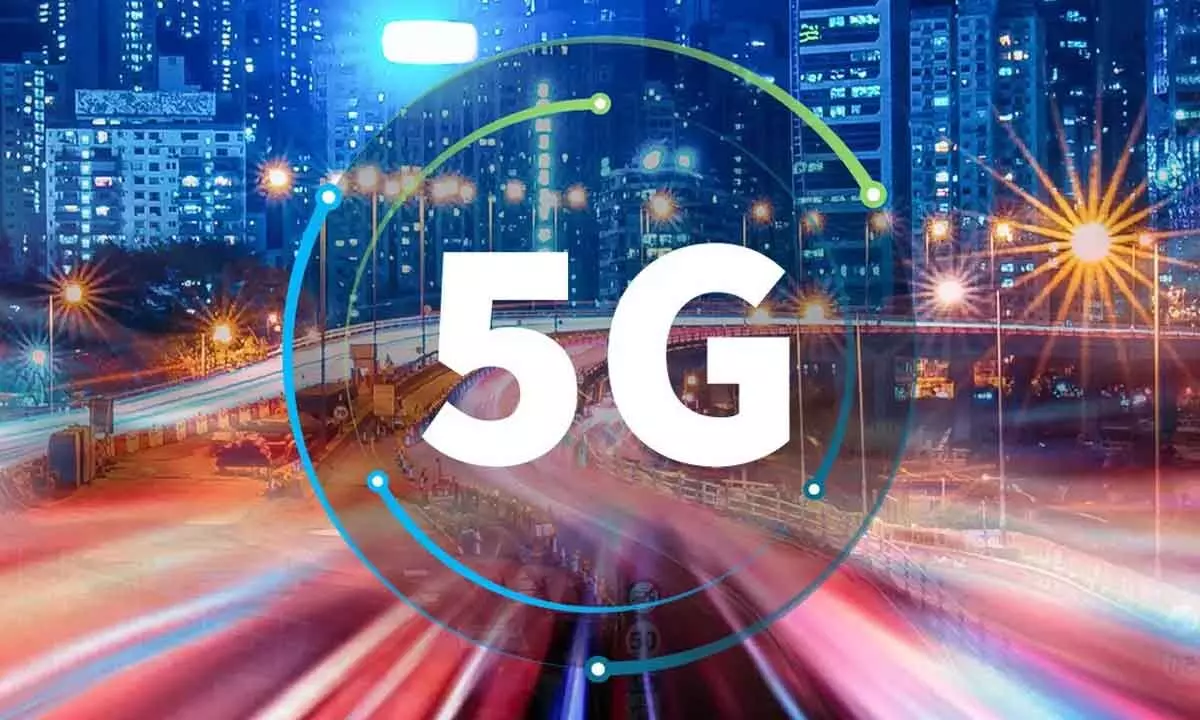Explained: All about 5G; its launch, types, speed, and more

Stage set for `1.9-trn 5G auction
The 5G, the fifth generation of mobile networks spectrum auction is happening on July 26; find all the details you need to know about it.
The 5G spectrum auction is happening and that too, very soon. On July 26, the Department of Telecommunications will organize 5G spectrum auctions in a wider range of bands and will allow telecom operators to bid on these bands for a period of 20 years. After the auction is over, your usual carriers like Airtel, Jio and Vi can roll out their 5G networks. But that's not quite what it sounds like: even after the auction that took place on July 26, it could be years before you get the most out of your 5G smartphone.
So, before you get too excited about 5G and all the related terminologies, we're here to simplify the technology and explain how it will benefit you in the real world. And no, don't throw away your high-speed Wi-Fi network at home just yet.
5G in the real world
5G, the fifth generation of mobile networks that expands on 4G with wider bandwidth and much faster data transmission speeds. Theoretically, 5G networks will be stronger and offer much faster internet speeds to your smartphone. Speeds are, in fact, as fast as the average home broadband solution.
Types of 5G
5G comes in two types. The Sub-6GHz 5G is the slowest type but with better connectivity. In a well-connected area, a sub-6 5G network can offer speeds of up to 500 Mbps. mmWave is the much faster type, offering Gbps speeds but suffering from a limited coverage area. Please note that the higher the frequency, the lower its ability to penetrate objects such as buildings, trees, etc.
Additionally, 5G in the early stages builds on the now more reliable 4G LTE networks to deliver fast internet speeds. So even if you have a 5G SIM card, your phone could still connect to 4G networks to offer you a reliable network.
5G Speed
With your current 4G networks, you get an average speed of 10-15 Mbps as long as you're in a good coverage area. The 5G network will at a minimum boost this speed up to 50Mbps, and if the network is good, you may experience speeds in Gbps. Yes, 5G can theoretically go up to 10 Gbps.
Will 5G be as weak as 4G?
5G networks will have higher bandwidth, which means more people will be able to access faster mobile data networks without compromising speed. mmWave 5G can support wider bandwidth, but only in smaller areas, such as a stadium.
Does 5G support any 5G smartphone?
Technically, No. Access to the 5G network also depends on the smartphone or tablet you are using. Your phone must have a modem that supports 5G speeds that fast. For example, the iPhone SE 3rd Gen offers 5G connectivity but only of the Sub-6GHz type. Only iPhone 12 and iPhone 13 can support mmWave 5G. Similarly, cheap 5G Android phones can only support 5G speeds below 6GHz. It is also crucial to check which 5G bands your smartphone supports.
When will 5G launch?
Will 5G launch after July 26, 2022? That is highly unlikely. Once the 5G spectrum auction takes place, telecom operators will get busy installing their infrastructure in the initial batch of 13 cities. In the early days, the 5G network will be poorly available in big cities and connectivity could be a problem. Additionally, carriers could charge higher prices for 5G services.
Remember that 4G LTE was first launched to the public in Kolkata in 2013, but it wasn't until 2016 that Reliance Jio rose to prominence. With Jio already around, we expect at least a one to the two-year period before 5G is available in major cities and semi-urban areas. Rumours say that metropolitan cities could see glimpses of 5G networks before the end of 2022.
Is 5G Hazardous?
Till now no scientific study has confirmed 5G to be harmful, so you can use it safely.
Should you dump 4G phones, and SIM cards?
Honestly, 4G is here to stay for years to come, and even though 5G is around, it's going to be the most reliable network option. 4G is now available in most semi-urban and rural areas, and in the future, its speeds will only get faster. 5G will take advantage of 4G in the early days to handle loads.











